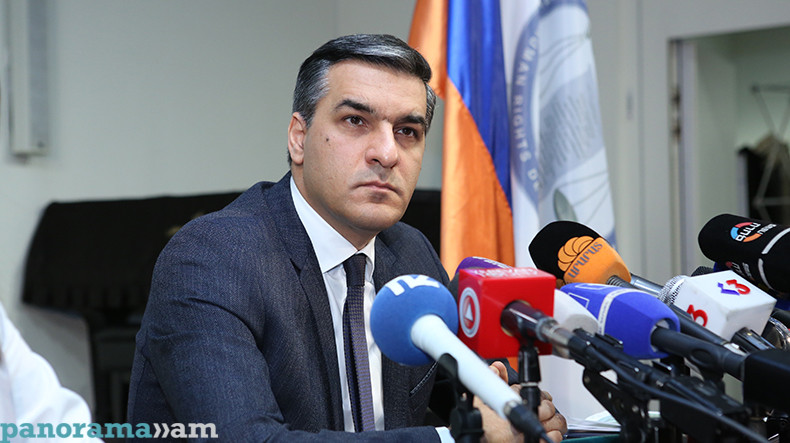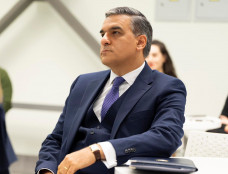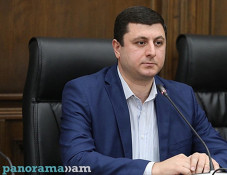
‘Justice doesn’t end at the prison gates’ – Armenian ombudsman on amnesty
In fact, amnesty should not pursue a goal of mechanically relieving jail overcrowding, Armenian Human Rights Defender (Ombudsman) Arman Tatoyan told a news conference on Friday.
According to him, such an attitude to amnesty is mostly based on years of misleading principle on depriving a person from liberty.
Tatoyan stressed that a presumption of confidence should be followed when dealing with a prisoner.
“Individual works should be carried out with them. A convict should be gradually prepared for freedom. But what have we done? We have kept them isolated for years, failing to carry out social-psychological works with them, and then we have stated they are not ready for freedom,” he said.
The ombudsman stressed the state should not tell an inmate he is not ready for freedom after failing to carry out its obligations.
He stressed the need to make landmark changes in the sector. “The issue of relieving prison overcrowding is, of course, very important, but there should not be an impression that this is the only issue: our penitentiaries are facing numerous issues,” Tatoyan said.
“You shouldn’t judge a person exclusively by the nature of crime he has committed. As the international law says, ‘Justice doesn’t end at the prison gates.’ We should always give people that chance,” he said, vowing to constantly voice the issues in the sector.
The amnesty law signed by the Armenian president on 3 November entered into force on November 6.
The new measure marks the 100th anniversary of the First Republic of Armenia and the 2,800th anniversary of the capital, Yerevan.
Related news
- 475 convicts released under amnesty as of now
- Law on amnesty to enter into force from tomorrow
- Acting justice minister: Amnesty to cover convicts serving up to 4 and 6 years in prison
- Armenian parliament unanimously adopts amnesty bill
- Amnesty bill a purely humanitarian act – acting justice minister
Newsfeed
Videos






























